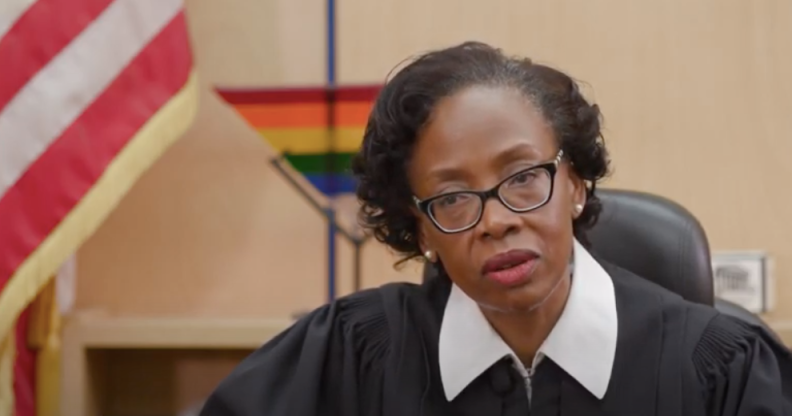Washington welcomes new Black, gay, female, disabled immigrant judge, giving the state the most diverse Supreme Court in history

Grace Helen Whitener, Washington state’s recently elected Supreme Court judge, is a Black, gay, female, disabled lawmaker. (YouTube/Pierce County Television)
Washington State has appointed a black, gay, female, disabled, immigrant judge to its state Supreme Court, making it the most diverse in history.
Grace Helen Whitener, 55, was born and raised in Trinidad but moved to the US for medical care at 16.
She went on to earn degrees from Baruch College in New York and the Seattle University School of Law, and worked as prosecutor, public defender and private defence attorney before becoming the first Black LGBT+ judge in Washington.
“I believe, as a marginalised individual — being a Black, gay, female, immigrant, disabled judge — that my perspective is a little different,” she said shortly before her nomination to the Supreme Court.
“I try to make sure that everyone that comes into this courtroom feels welcome, feels safe, and feels like they will get a fair hearing.”
Throughout her career Whitener has been an outspoken advocate of judicial diversity. She is co-chair of the Washington State Minority and Justice Commission and has sought to educate marginalised communities about the legal system.
“We have a limited number of judges of colour on our benches here in Washington State,” she noted in 2019.
“It’s not reflective of the population that it serves. And one core cannon of our judicial system is trust and confidence — building it on our communities.
“Having a judiciary that is reflective of the community that it serves is truly important in raising trust and confidence in the services that we provide as judicial officers.”
Whitener was appointed to Washington’s highest court by the state’s Democrat governor Jay Inslee, who also recently swore in Raquel Montoya-Lewis, the first Native American justice to serve on the bench.
The other members of the court are Chief Justice Debra Stephens, Justices Barbara Madsen, Charles Johnson, Susan Owens, Steven Gonzalez, Sheryl Gordon McCloud, and Mary Yu.
It serves as a clear counterpoint to Trump’s federal Supreme Court, which is growing more male, pale and stale by the day.

